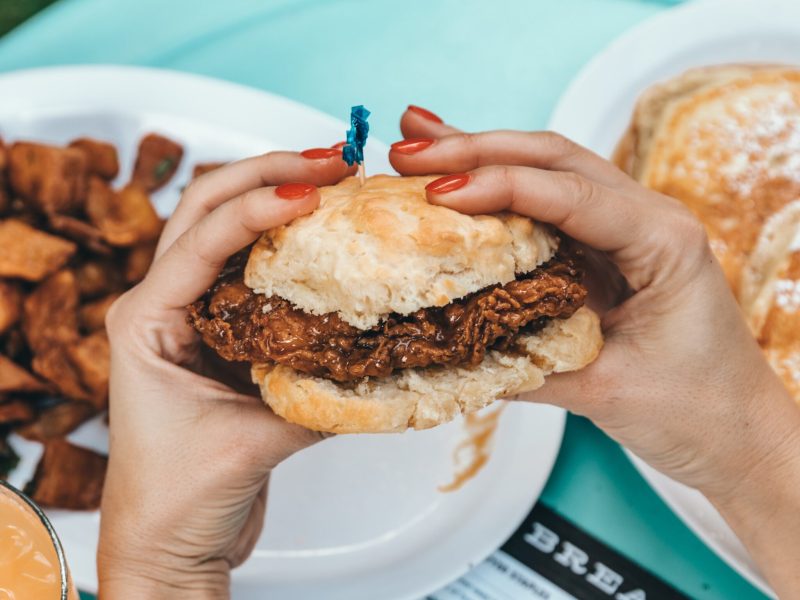
Prawn and Aspargus Sheet Pan Dinner
Ingredients: Green Prawns (200g per person) Asparagus (10 spears per person) Garlic Lemon Juice Extra Virgin Olive Oil Method: On a baking sheet place the

So! You’re planning to have a baby. What if I told you that what you eat can influence your chances of getting pregnant? Here are our top four food groups to avoid when trying to conceive:
1. Ultra-processed foods:
Ultra-processed foods generally come packaged and are ready-to-eat. They contain lots of sugars and saturated fats as well as artificial colours and preservatives; these have shown to be harmful when planning a pregnancy. It probably doesn’t come as a surprise that ultra-processed foods are directly linked to obesity, and obesity can put women at higher risk of miscarriage, as well as gestational diabetes. These go on to affect the baby’s health later in life. So, not only can ultra-processed foods influence your chance of falling pregnant, they can also cause problems down the line for your baby. All good reasons to limit these when trying.
Top-tip: Eating healthy doesn’t have to be a chore – Book Now for help with time-saving meal plans and dietary advice
2. High-sugar foods
The common culprits include chocolate, cakes, lollies and biscuits. I’m not saying you need to cut these out completely, but frequent consumption of high-sugar foods can have a significant effect on fertility hormones. For women, these are follicle-stimulating hormone (FSH), luteinising hormone (LH), oestrogen and progesterone. In fact, one study found that conception rates can decrease by up to 25% when having one soft-drink a day1.
Top tip: switch out soft-drink for water or a caffeine free fruit tea
3. Saturated-fats
Foods such as pastries, chocolate, chips and burgers fall into this category. Saturated fats can cause the fluid surrounding your eggs to become inflamed. When this happens, eggs may not fully develop, reducing chances of conception. A high consumption of saturated-fats will also lead to obesity, again placing further risk on fertility.
Top tip: try opting for fresh, low processed snacks instead like some fresh fruit or a small handful of nuts.
4. Alcohol:
This one is the biggie. Alcohol is high in calories and has zero nutrition. Whilst the exact mechanism is yet to be established, women who consume more than seven drinks within the week, or more than three on any given day can expect to lower their chance of conceiving. Implantation rates and ovulation has been found to decrease with excessive alcohol intake and intake can also increase chances of miscarriage.
Top tip: alcohol also affects male’s sperm quality so try swapping out those G and T’s for a spritzer instead.

Ingredients: Green Prawns (200g per person) Asparagus (10 spears per person) Garlic Lemon Juice Extra Virgin Olive Oil Method: On a baking sheet place the

I love these burgers because they’re so easy to make and they’re absolutely packed with nutrition to boost your fertility journey. Having some red meat

What is an AMH test? The AMH test, short for anti-mullerian hormone test, measures the levels of anti-mullerian hormone (AMH) in your blood. Both men

Veggie Loaded Bolognese This veggie loaded bolognese is high on the rotation list at our house. It’s packed with incredible nutrients to help support your
Appointments are available online or in person.